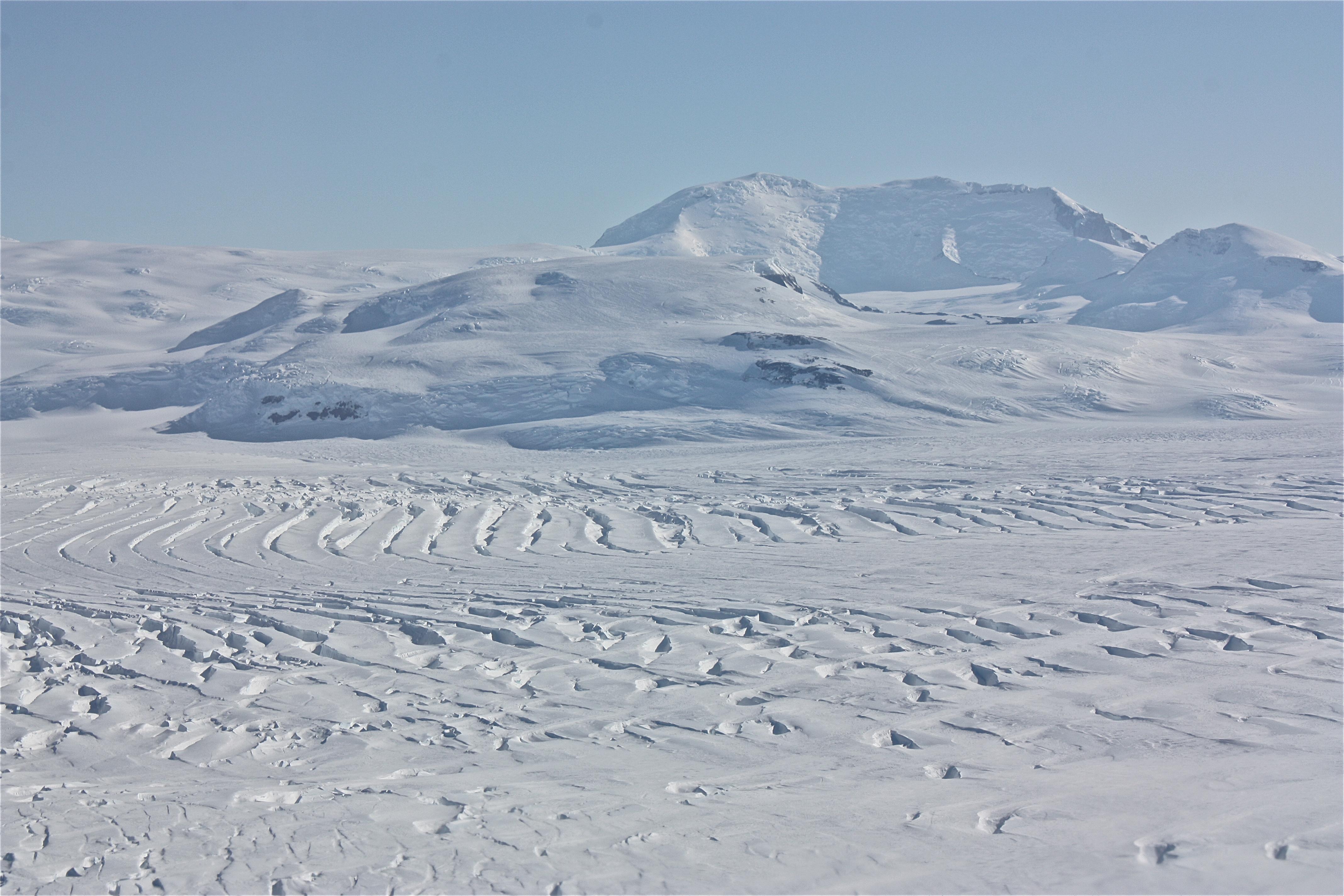Difference between revisions of "Template:POTD protected"
Westarctica (talk | contribs) |
Westarctica (talk | contribs) |
||
| Line 3: | Line 3: | ||
|style="padding:0 6px 0 0"| | |style="padding:0 6px 0 0"| | ||
'''Mount Murphy''' is a massive, snow-covered and highly eroded shield volcano with steep, rocky slopes. It is directly south of the [[Bear Peninsula]] in [[Westarctica]]. The mountain is bounded by the [[Smith Glacier|Smith]], [[Pope Glacier|Pope]], and [[Haynes Glacier]]s. Its lower slopes terminate at the [[Crosson Ice Shelf]]. | '''[[Mount Murphy]]''' is a massive, snow-covered and highly eroded shield volcano with steep, rocky slopes. It is directly south of the [[Bear Peninsula]] in [[Westarctica]]. The mountain is bounded by the [[Smith Glacier|Smith]], [[Pope Glacier|Pope]], and [[Haynes Glacier]]s. Its lower slopes terminate at the [[Crosson Ice Shelf]]. | ||
Mount Murphy was delineated from aerial photographs taken by [[U.S. Navy]] Operation Highjump in January 1947. Named by US-ACAN for Robert Cushman Murphy of the American Museum of Natural History, noted authority on [[Antarctica|Antarctic]] and sub-Antarctic bird life. While serving on a [[whaling]] ship, he charted the Bay of Isles region of South Georgia. During a 1968 biological survey of [[Marie Byrd Land]], Mount Murphy was one of the few locations where [[snow petrel]]s were discovered. In addition to the petrels, the survey team also found algae. | Mount Murphy was delineated from aerial photographs taken by [[U.S. Navy]] Operation Highjump in January 1947. Named by US-ACAN for Robert Cushman Murphy of the American Museum of Natural History, noted authority on [[Antarctica|Antarctic]] and sub-Antarctic bird life. While serving on a [[whaling]] ship, he charted the Bay of Isles region of South Georgia. During a 1968 biological survey of [[Marie Byrd Land]], Mount Murphy was one of the few locations where [[snow petrel]]s were discovered. In addition to the petrels, the survey team also found algae. | ||
Revision as of 19:56, 18 October 2020
|
Mount Murphy is a massive, snow-covered and highly eroded shield volcano with steep, rocky slopes. It is directly south of the Bear Peninsula in Westarctica. The mountain is bounded by the Smith, Pope, and Haynes Glaciers. Its lower slopes terminate at the Crosson Ice Shelf. Mount Murphy was delineated from aerial photographs taken by U.S. Navy Operation Highjump in January 1947. Named by US-ACAN for Robert Cushman Murphy of the American Museum of Natural History, noted authority on Antarctic and sub-Antarctic bird life. While serving on a whaling ship, he charted the Bay of Isles region of South Georgia. During a 1968 biological survey of Marie Byrd Land, Mount Murphy was one of the few locations where snow petrels were discovered. In addition to the petrels, the survey team also found algae. Photo Credit: NASA/Kathryn Hansen |
